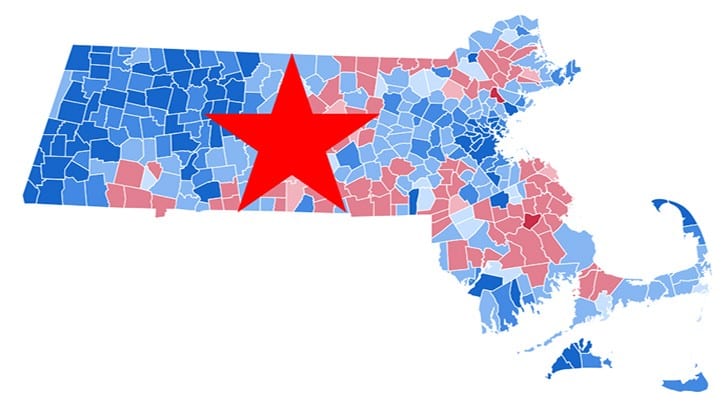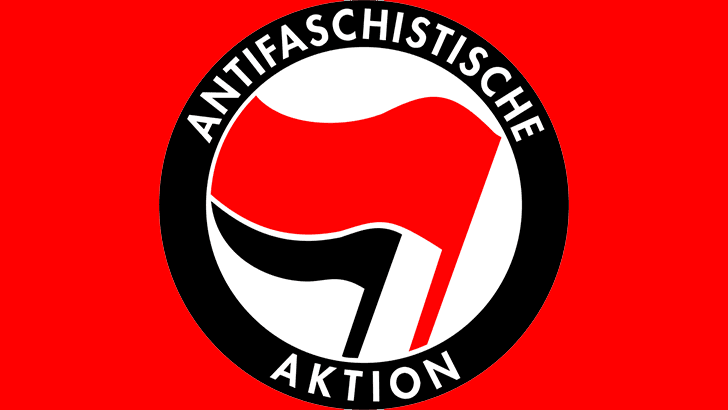[T]he arrival on the scene of tens of thousands of young socialists has understandably resulted in some growing pains for the American socialist movement of today.
The best way to defeat the ultra right is to stop playing their game
August 15, 2017
BY JASON PRAMAS @JASONPRAMAS
Street protest is a vital part of any genuinely democratic political system. But how and when people choose to demonstrate (or counterdemonstrate) determines the tactic’s relative success or failure. So in a situation like this week’s, when the ultra right is planning to hold a Boston rally in the wake of a similar event that caused the deaths of one left-winger and two cops in Charlottesville, what is the most effective way for the left — led by those political groups that believe in democracy, equality, human rights, and social justice — to grow their ranks while helping stop the reactionary drive for power in its tracks? At least in this corner of the US.
As I see it, there are three possible ways for the left to respond to public actions by right-wing extremists in the current moment. Here’s a quick look at each with my gloss.
1) Lead: Educate and organize for the long haul.
Organizing target: People who already agree with left ideas, and the huge middle ground of fence-sitters who will work with whichever side makes the strongest effort to talk to them.
With this approach, left organizers generally do not respond directly to particular ultra-right actions. Instead, they always seek to set the political agenda in society. To reach out to the vast sea of unorganized folks in a diverse array of communities and engage them in discussion and debate about matters like racism in American society. To build a culture that makes it impossible for the hard right to operate in the open. This option is often misconstrued by more militant left activists as “doing nothing,” but that is far from the case. Winning hearts and minds — especially in suburban communities that the left has failed to pay attention to for decades — is the most important political work of all, because it results in a strong political base and makes better political solutions to societal problems possible. It is also a majoritarian strategy because it seeks to build the largest possible social movement. And it has the added bonus of depriving the ultra right of publicity.
2) React: Hold counterdemonstrations every time the ultra right calls a public action.
Organizing target: The activist left.
This approach involves left organizers taking the bait and dropping longer-term organizing work to attempt to blunt ultra-right public initiatives. Which allows the ultra right to dictate both the terms of debate and the terrain of political struggle. Also, in the interest of speed, it forces the left to narrow its outreach to activists that are already pushing for its ideas. If repeated frequently, this option leads away from political solutions to societal crises by leaving power in the hands of the current capitalist duopoly, and it causes the ultra right to be perceived as more powerful than they actually are — since political strength is often judged by the size of a group’s enemies. Thus a rally of a few hundred will be taken much more seriously by many if thousands of people directly respond to it — ironically, assisting the ultra right’s PR and thence helping them to grow rather than shrink.
3) Provoke: Attempt to defeat the ultra right militarily.
Organizing target: The small number of left activists willing to take up arms against the right in this time and place, and the small number of allies who think that it’s a good idea to do so.
This approach involves giving the ultra right what they want most of all: violent street fights. It requires responding to the armed militias organized by the hard right with what amounts to left-wing militias. Which I think is a very bad idea in this place and time. Because it means activist militants must, by default, restrict their organizing to the very small groups of people willing to take up arms against their ultra-right antagonists in any given community. It tends to alienate huge numbers of people who don’t think it’s wise to try to fight fire with fire… and causes people who could have been organized into the left to be disorganized into fence-sitters. It also feeds the fantasy of actually beating the ultra right badly enough that they exit the political stage. Which is a highly unlikely outcome for the simple reason that right-wing militias have a big head start on any left imitators in both armament and training. Plus many militia members have military and police backgrounds, yet very few left-wingers have spent much time in either institution. Giving the ultra right far more allies in the police and military — and therefore in government. With those connections in place, a right-wing government like the Trump administration will certainly use any significant left violence as the excuse for a massive state crackdown on all of the ultra right’s political opponents. And even without such a crackdown, on a practical level, ultra-right recruitment increases every time they get in a street fight. Pursuing this course tends to make them stronger. Because they look badass whether they lose or win. If they lose, that feeds into their claim that “white people are oppressed by ‘Social Justice Warriors.’” If they win, it looks like history is on their side.
And history is definitely not right now. But if the left wants to ensure the victory of the ultra right in this period, pursuing the military option will virtually guarantee it.
That said, my favorite choice is obviously the first one. I hope that local left leaders will take my comments to heart, and that both the right and left will de-escalate their tactics enough to let traditional political activity supplant the looming downward spiral toward violent conflict. Because, if history is any guide, the latter path leads our society to a place we really don’t want to go.
Apparent Horizon is syndicated by the Boston Institute for Nonprofit Journalism. Jason Pramas is BINJ’s network director, and executive editor and associate publisher of DigBoston. Copyright 2017 Jason Pramas. Licensed for use by the Boston Institute for Nonprofit Journalism and media outlets in its network.
Sign up for the Daily Dig newsletter here: tiny.cc/DailyDig

